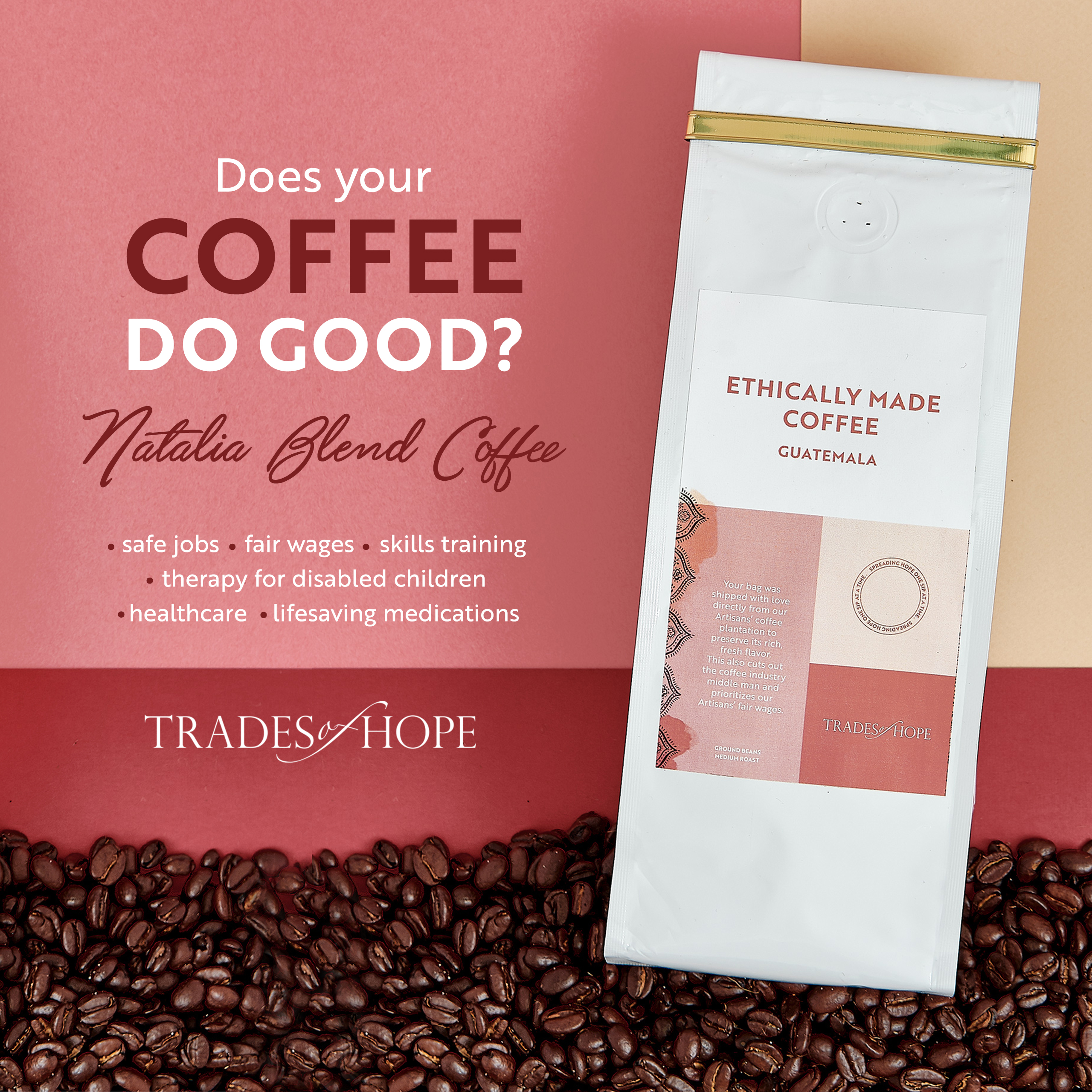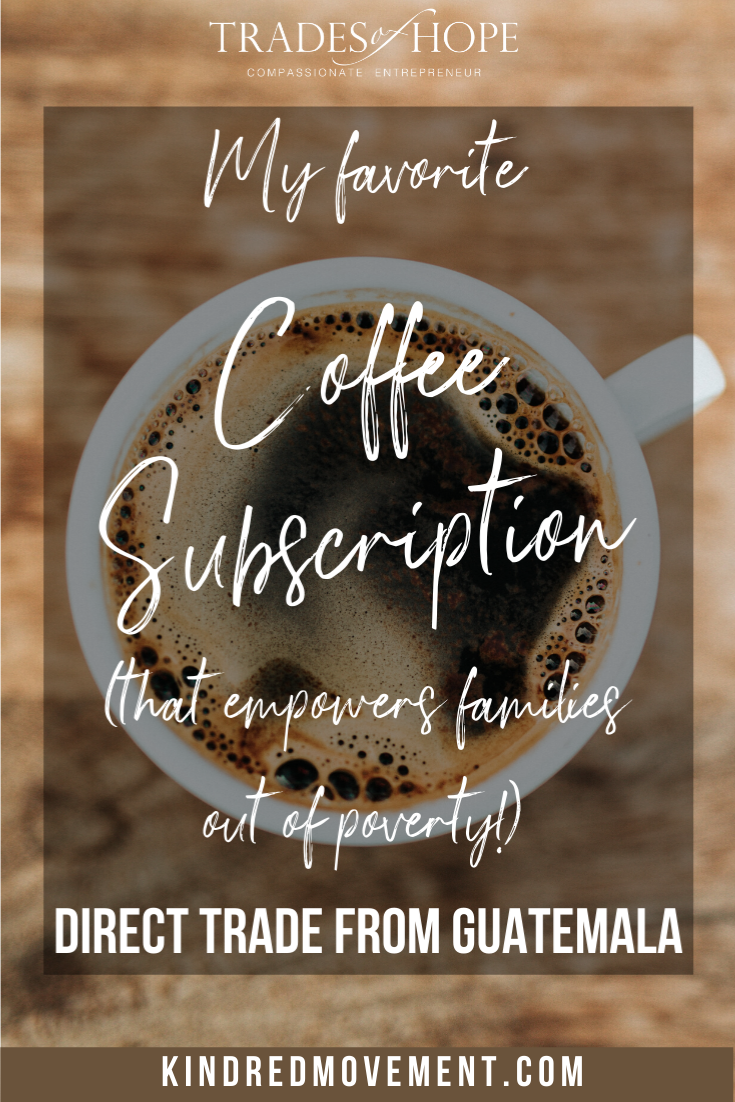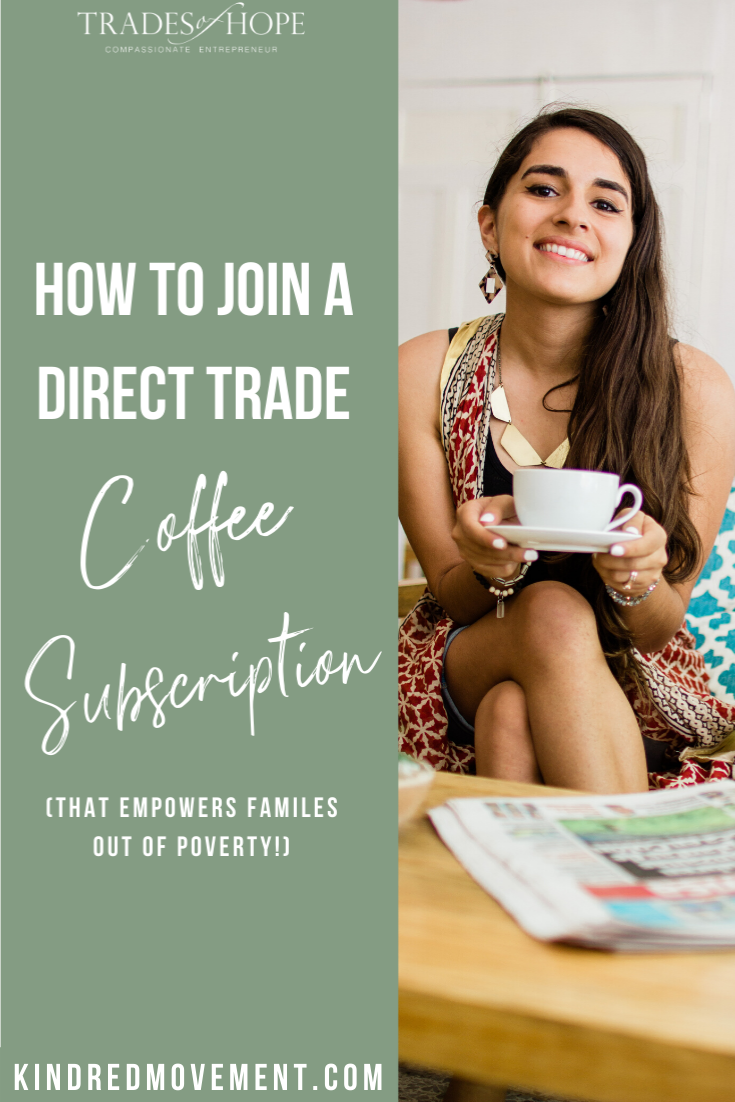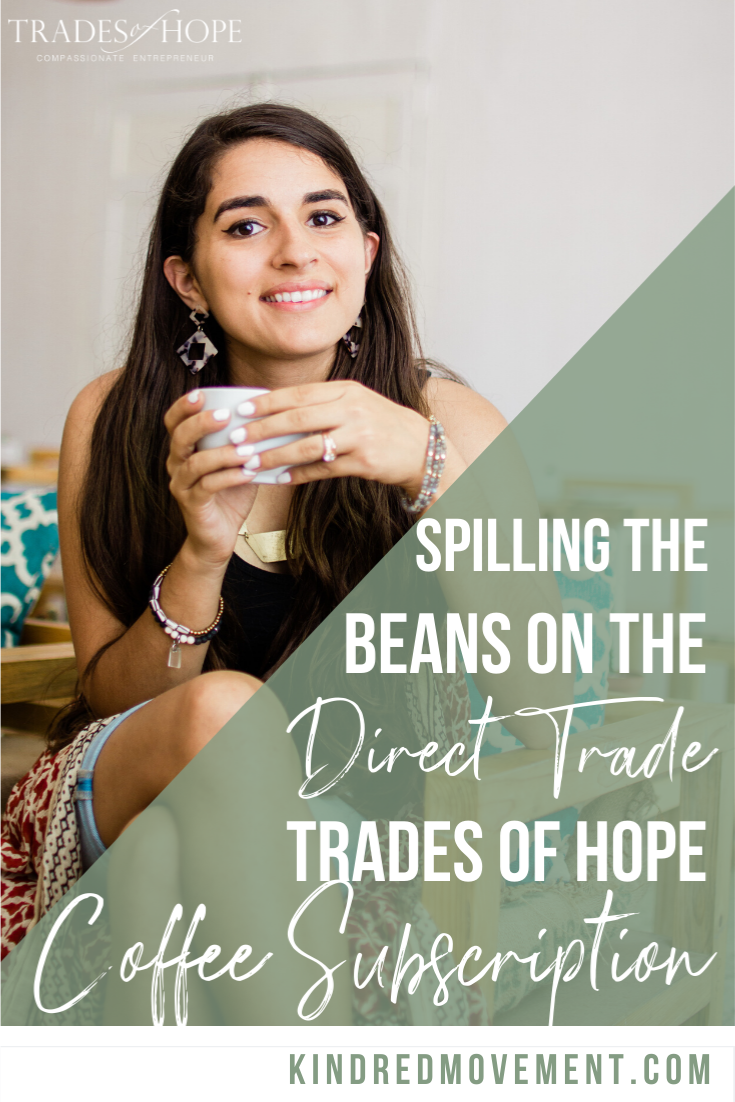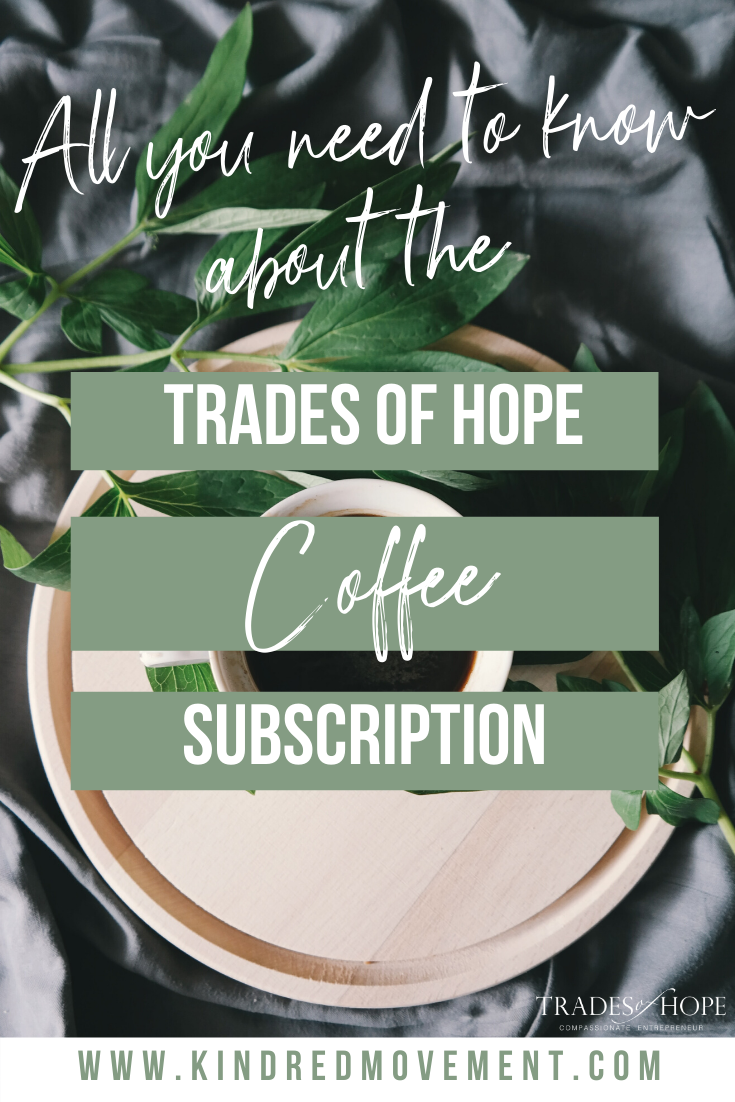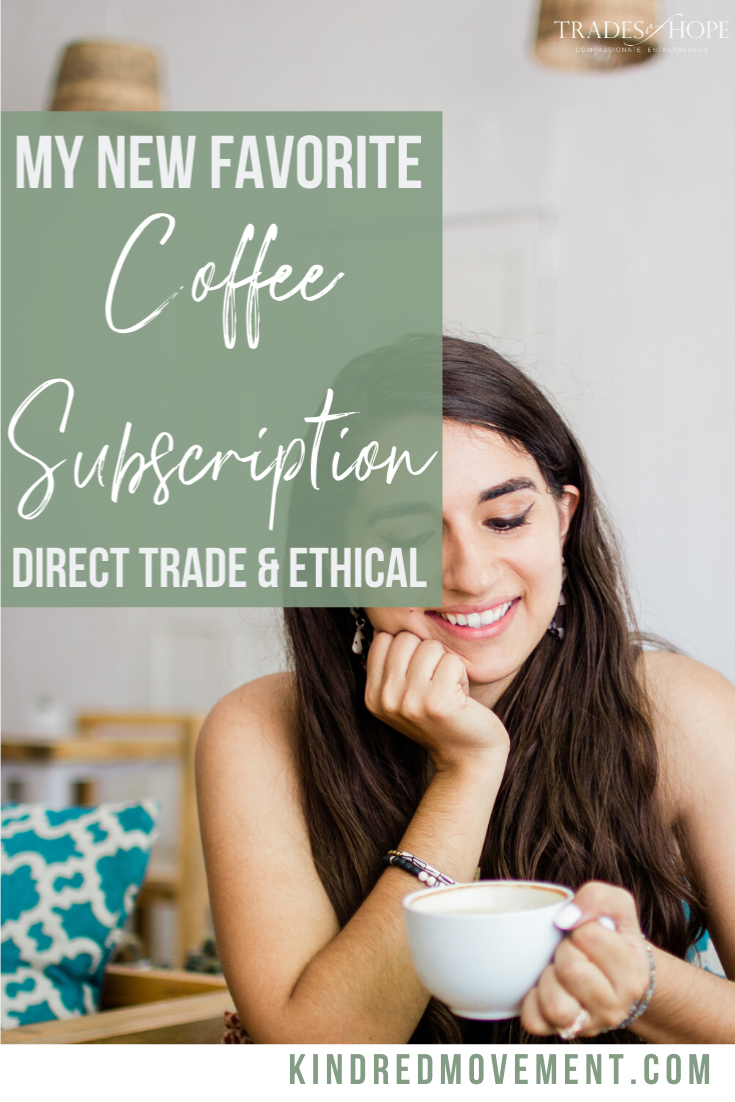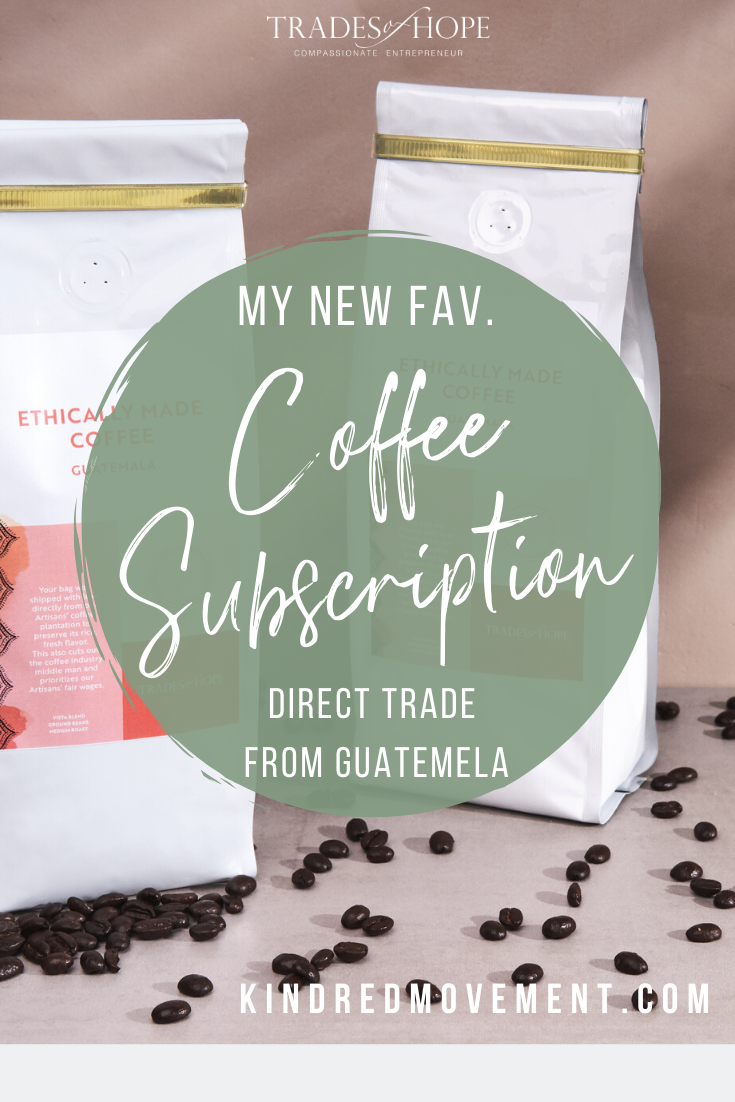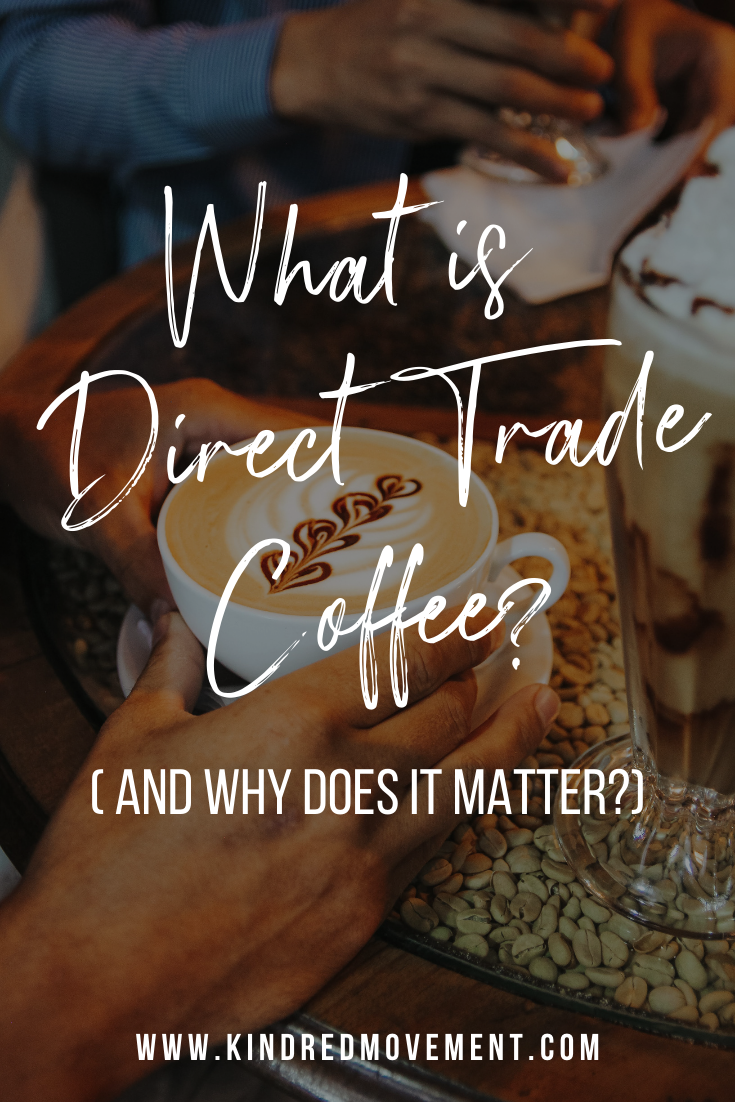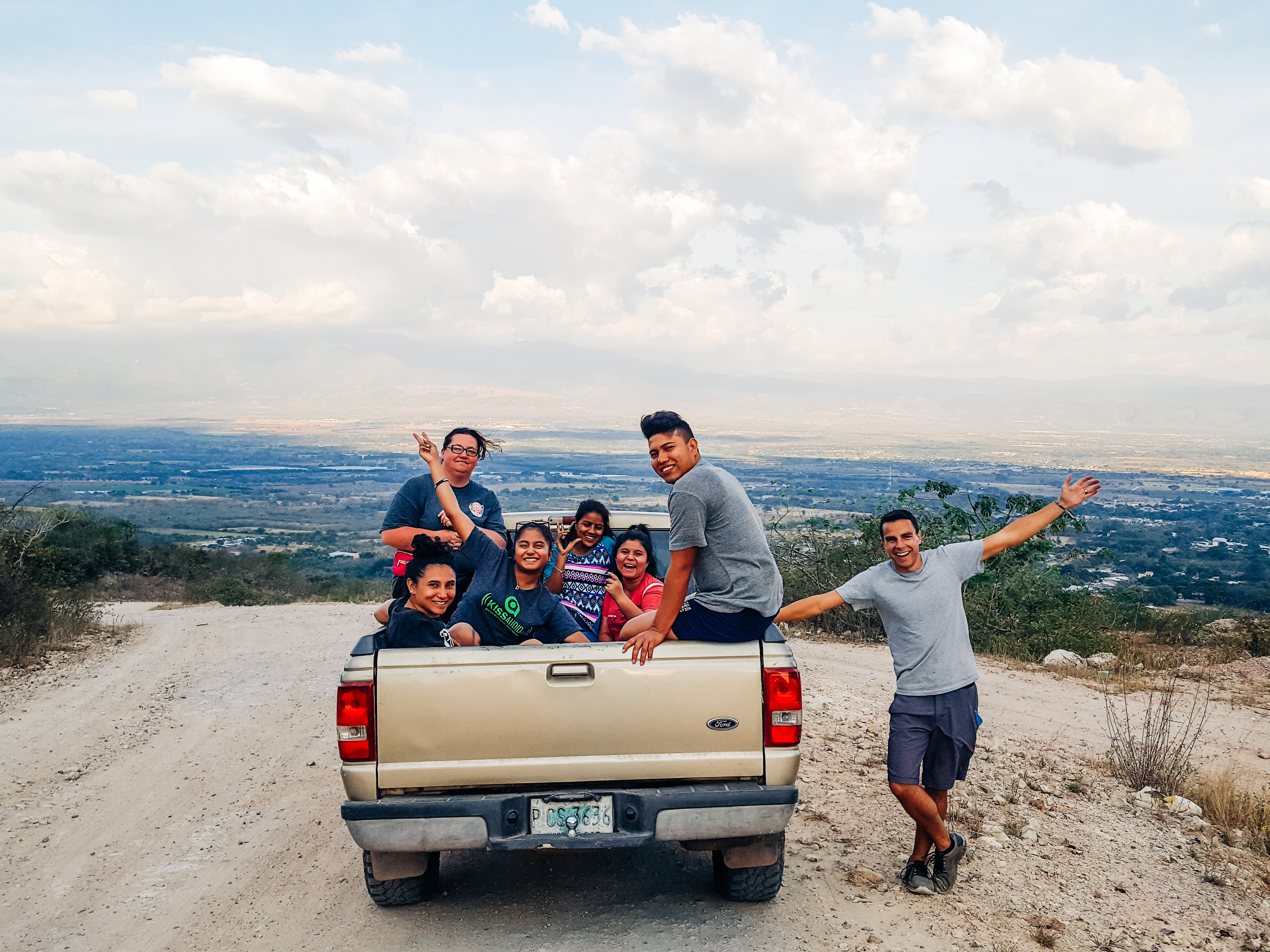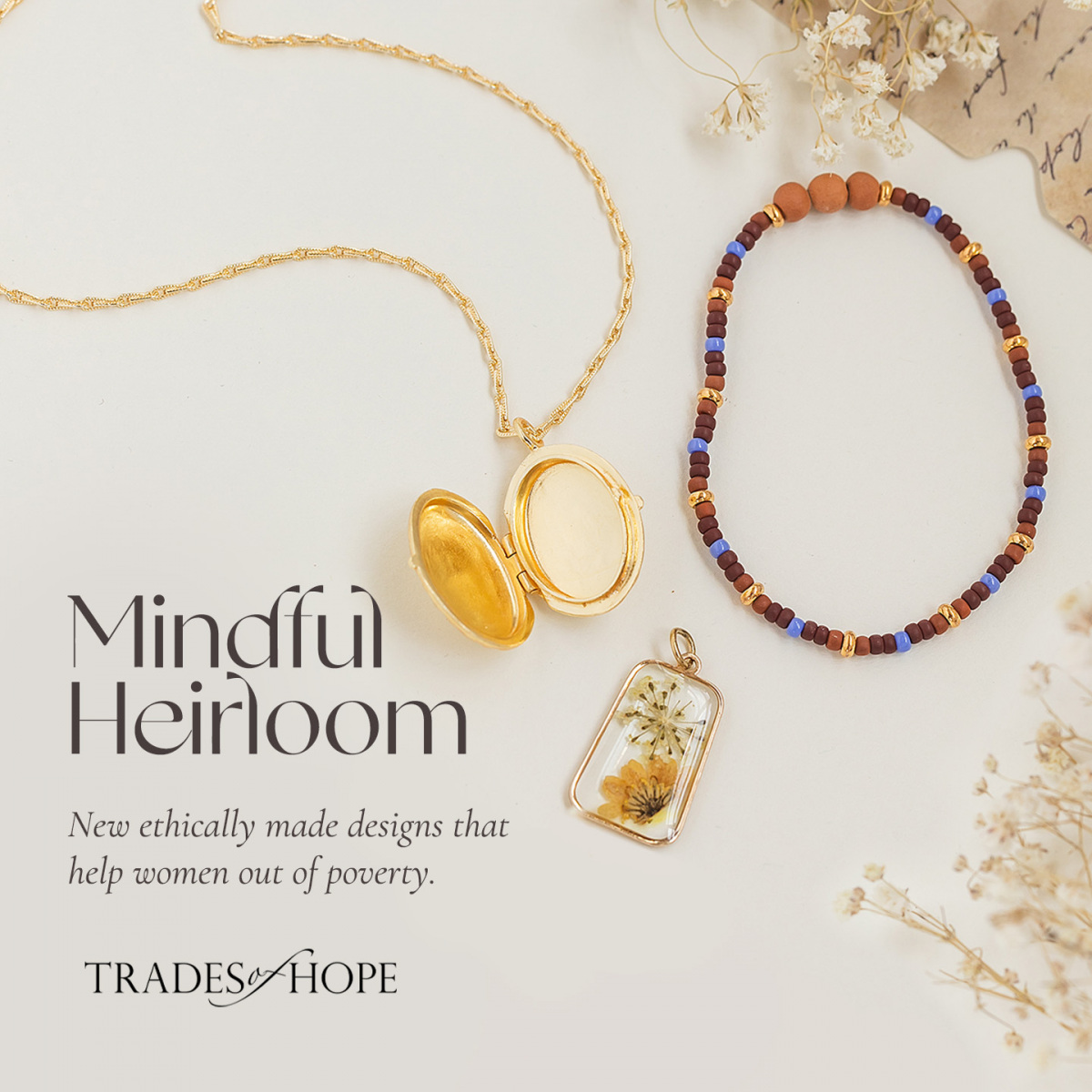Trades of Hope Coffee Subscription
Trades of Hope’s new, highly anticipated coffee subscription program from our Artisan Partners in Guatemala is here! Learn all about it in this post! Scroll to the bottom to find out how you can get your hands on this coffee and shop sip to end poverty! (Get $10 Cash Back on your first month when you start your subscription with me!)
Introducing the Natalia Blend, in honor and celebration of the Artisan leaders’ brand new baby girl!
This post contains affiliate links. Please see my disclosure policy for more.
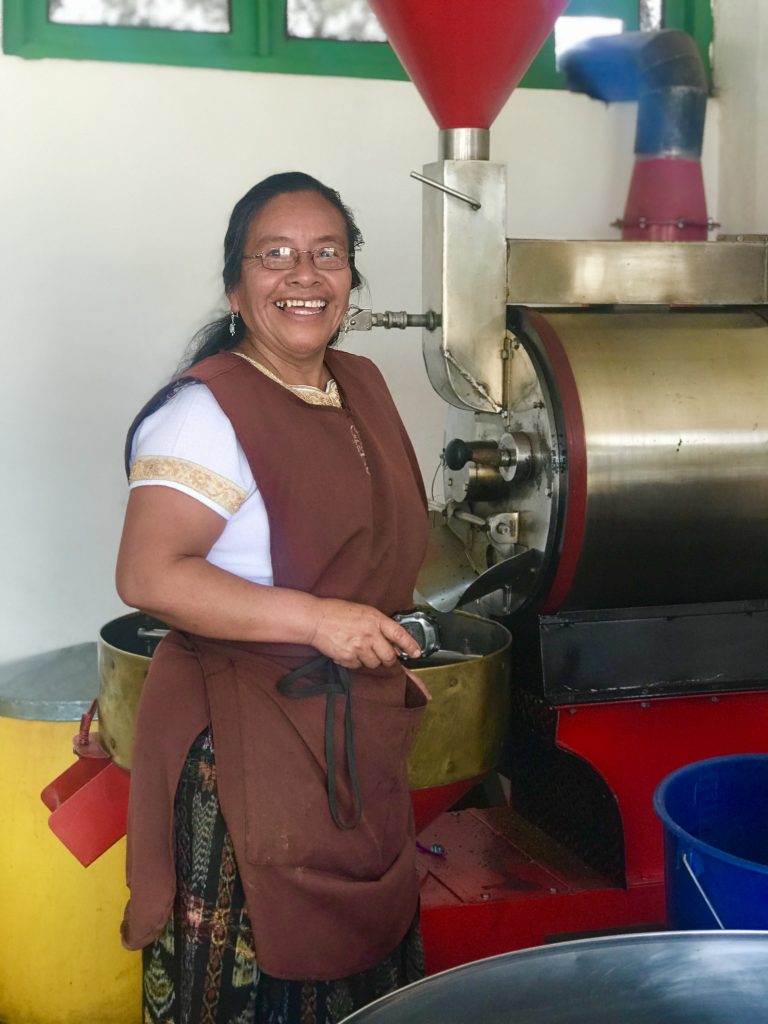
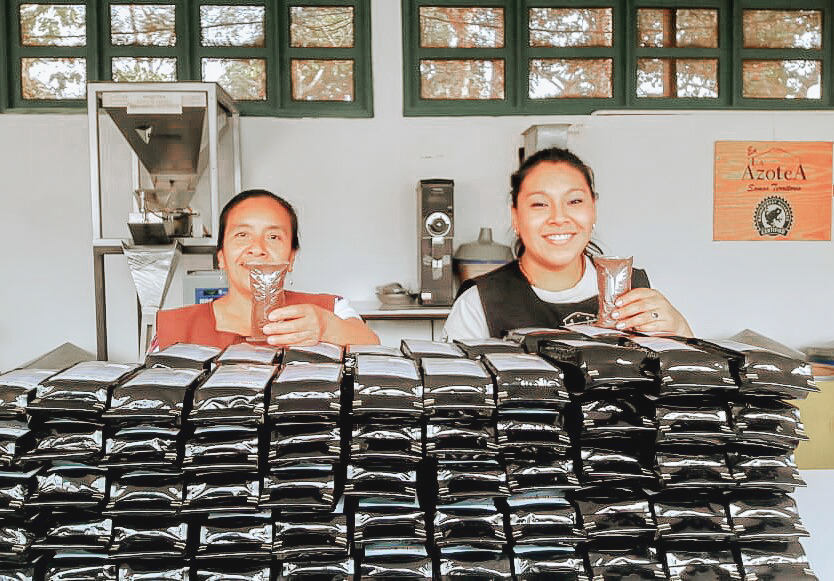
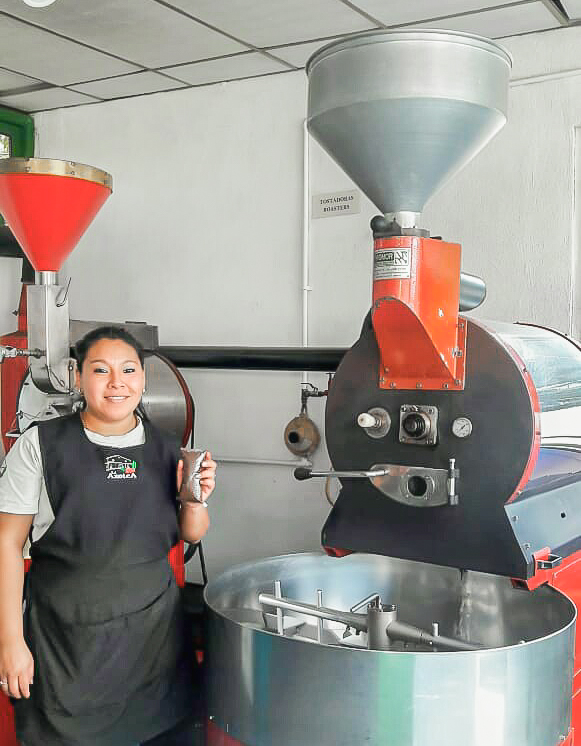
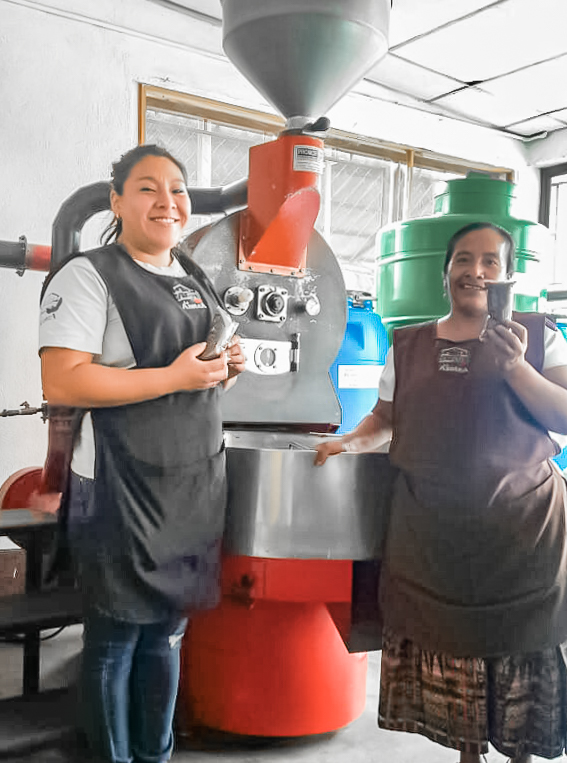
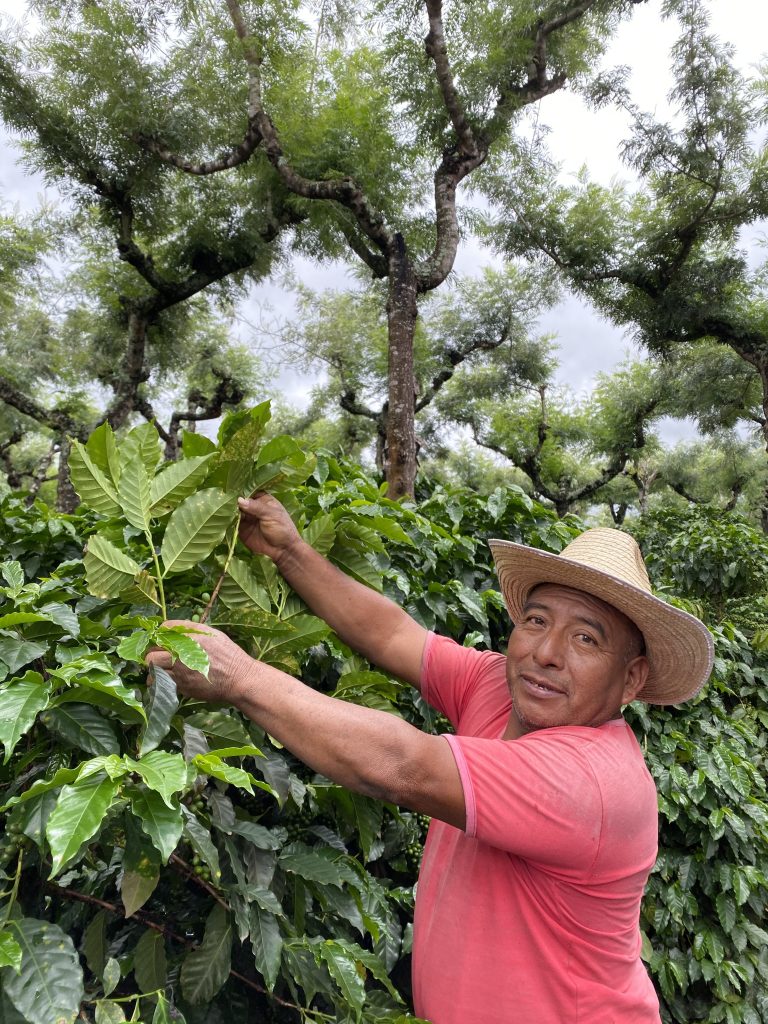
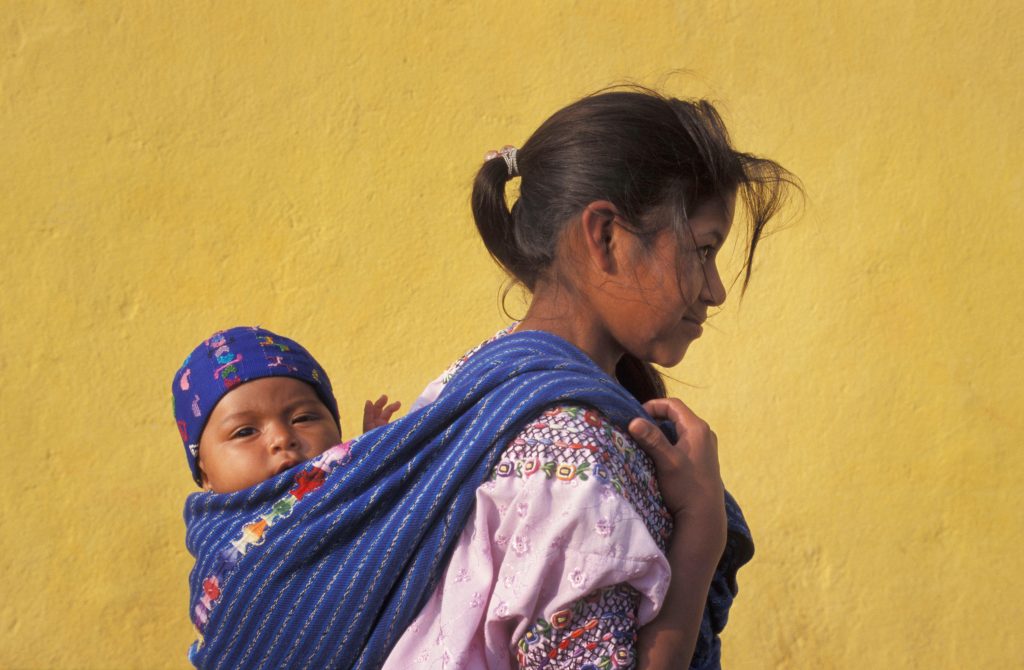
About the Coffee
The Natalia Blend coffee is cultivated with care by passionate Artisanal coffee farmers and roasters that come from a long lineage of coffee growers. Great care is taken with regard to the environment in which this coffee is grown. Shade is very important for the ongoing sustainability of the plant, so strategic planting ensures a canopy for growth and plant longevity. Surrounding plants contribute to the soil in which the coffee plant grows, so flora is planted to reduce bitterness in the bean. Should pests attack, Pablo only uses organic means to rid the plants of pests, items you’d likely find in any pantry.
We think the coffee speaks for itself with first sip, but let’s hear how Pablo describes this rich, flavorful coffee in his own words:
“The Natalia blend is a single origin coffee from the Antigua Guatemala coffee region. It is a blend of 100% Guatemalan beans harvested from 3 different altitudes.
Being from 3 different altitudes, the Natalia Blend is crafted to produce the perfect aroma, body, taste, aftertaste and acidity. This blend is very unique, with lots of chocolate and cacao notes, which is very characteristic from the region.
Coffee is a very artisanal product, all the way from harvest by handpicking every ripe cherry bean, to the roasting process and making the blends. Everything is done by hand, as a coffee industry we don’t like to use a lot of machinery as coffee is a VERY GENERATIONAL ART for us. In my case, my familia has been involved in coffee since my grandparents. It is the same with most of the workers.”
We asked Pablo to explain a bit about this Direct Trade partnership. Here’s what he had to say:
“In the coffee world, usually a broker buys to several coffee plantations and this broker sells the green coffee to a bunch of brands in the U.S. so they can roast their coffee under their label. Usually the consumer will never know what plantation or coffee grower. Also, they mixed beans from all over the world to reduce costs and tell you it is from Guatemala when it may not be at all. The timeframe between the green coffee beans making their way from the plantation to your cup can be upwards of 4-6 months.
We are direct trade as I can actually let you hand pick your coffee if you want, meet the workers and the entire coffee plantation and our community. There is no middle man at all. Your customers are going to place their order, we receive every order — then we will of course harvest the coffee, but we will roast and pack their coffee and send it straight from the coffee plantation in Guatemala to their door in the USA every week. With our direct trade coffee, you customer can actually come to the coffee plantations and meet each one of us … including Natalia.”
What is “Ethically Sourced Coffee?”
Coffee that supports farmers and the environment through its growing and harvesting methods. Both Fair Trade coffee and Direct Trade coffee are sourced following a strict set of rules that ensure products improve the living conditions of small farmers and are produced with sustainable practices. Workers must be paid fairly in an environment free of injustices. The relationship with the coffee farmer and the consumer is mutually beneficial and environmentally friendly.
Moreover, sourcing coffee ethically means that roasters can have greater control over the quality and social sustainability of their beans.
According to ethicalcoffee.net, “Direct trade is a term typically used by coffee roasters who buy straight from the growers, cutting out both the traditional middleman buyers and sellers and also the organizations that control certifications such as Fair Trade and others, for example. Direct trade proponents say their model is the best because they build mutually beneficial and respectful relationships with individual producers or cooperatives in the coffee-producing countries. Some roasters do it because they are dissatisfied with the third-party certification programs, while others want to have more control over aspects ranging from the quality of the coffee, to social issues, or environmental concerns.”
About the Artisans
Trades of Hope is proud to offer ETHICALLY SOURCED 100% Guatemalan Beans Grown, Harvested, Roasted, Packaged, and Shipped by Artisans that align with Fair Trade Principles.
The Artisans we work with in Guatemala are pillars in their community. The plantation is run by Pablo and Sara, and plantations have been in Pablo’s family for 130 years. We have worked very closely with the Pablo to ensure the beans are picked, roasted, packed, and shipped directly from the plantation to the consumer. Pablo has extensive expertise in the coffee industry. He is one of their 3 certified coffee tasters, or “Cuppers,” who are highly trained to discern quality and flavor notes from various beans.
Pablo himself has selected this blend of beans, chosen from three different elevation levels to determine the perfect balance of strength, acidity, and flavor profile for our Natalia Blend. After the Roastmasters roast each batch, it is randomly tested for quality by a Cupper. Every batch must meet Pablo’s high standards or it is rejected.
Unlike some coffee plantations that may utilize slave labor or child labor, Pablo and other plantation owners in the region unite to create a dignified working environment where human values are put above numerical values. Along with the safe jobs and fair wages paid to its own workers, the Artisan group works closely with other coffee farmers in the community to make sure all workers are treated fairly and cared for by helping to provide:
- healthcare
- skills training
- therapy for disabled children
- lifesaving medications
- educational science excursions for community children to learn about farming
- the ability for Artisans to personally give back to their communities
By offering a coffee subscription program, we can join forces to create ONGOING SUSTAINABILITY for Artisans and their families in Guatemala. Pablo and Sara want to use their influence as plantation owners and their gifting in this business to be about HUMAN goals (not just financial goals). As business owners, they work to provide health care clinics for their migrant workers. But they are also acutely aware of the needs around them, and use their influence and resources to impact others in the region. They work with other plantation owners to gain better treatment of workers and extend health clinics to them as well.
In the words of one of our Partners who had the privilege of visiting the plantation and meeting the Artisans, “This coffee not only tastes good…it does good. In this industry that’s full of abuse, child labor, and slave labor…let’s share some GOOD coffee!”
Click here & get Your Own for $46 today!
Get $10 Cash Back on your first month when you start your subscription with me!
Product can be purchased as a one-time purchase or as a recurring subscription.
- The Retail price for this product will be $46.00; this price includes shipping directly from the plantation in Guatemala.
- The quantity and frequency is chosen by the customer at time of initial order.
- The recurring subscription quantities and frequency can be adjusted by our Customer Care department at any time.
- Each shipment will contain (2) 14-ounce resealable bags of coffee as selected in the initial shipment (i.e, whole bean OR ground coffee).
- Customers cannot combine orders of ground and whole bean coffee.
- Orders will be processed and shipped directly from the Artisans in Guatemala, typically within 7-10 business days.
Cost Per Serving:
The standard store bought K Cup costs roughly 50-60 cents each and will yield 1 mug of coffee. The cost of the Natalia Blend coffee is roughly 27 cents per 5-6 ounce cup. The average mug size is 10 -12 ounces, putting the cost per serving around the same price of purchasing K Cups.
Shelf Life:
Unopened, ground coffee: 2 months with the optimum characteristics required to enjoy a cup of coffee
Opened ground coffee: 30 days with the optimum characteristics required to enjoy a cup of coffee.
After this time, characteristics such as aroma, body, taste, aftertaste and acidity begin to diminish. For best experience, we recommend consuming the Natalia Blend coffee within 6 months.
How to get it at wholesale pricing:
If you are wondering how you can purchase the Natalia Blend Coffee at wholesale price, sign up to be a Compassionate Entrepreneur! For only $39 you can join Trades of Hope and enjoy all the perks and benefits of being a Compassionate Entrepreneur.
Have more questions about becoming a Compassionate Entrepreneur?
Read this post and follow up by emailing me at tawny@kindredmovement.com


